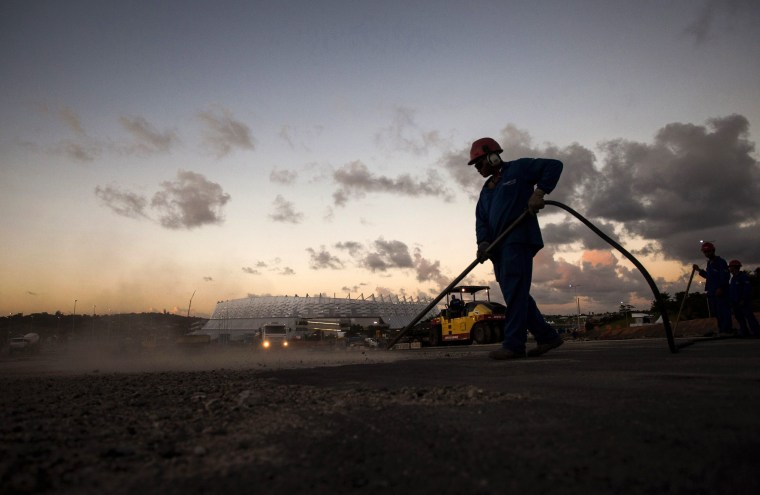For soccer fans flocking to Confederations Cup matches in Brazil's tropical northeast next week, getting tickets to the stadium should be simple - but two in three will not find accommodations in the host city Recife.
Officials are sending visitors as far as 120 kilometers (75 miles) inland to spend the night, a detour on par with staying in Philadelphia for a New York Knicks game.
The tournament starting Saturday, a dress rehearsal for the 2014 World Cup, will lay bare for visitors what may surprise many: despite gorgeous beaches, a tempting climate and legendary hospitality, Brazil's tourism industry pales next to its neighbors.
How has Brazil - blessed with 7,500 kilometers of sunny coastline, the fame of Rio de Janeiro and the wonders of the Amazon - managed to blow such an open shot on goal?
Even in Recife's more expensive hotels, introducing oneself in English can prompt blank stares and embarrassed grins. In one case, the concierge at a hotel - FIFA-certified accommodation for the World Cup - went silent after such an introduction.
"Hello, my name is?" he then asked, furrowing his brow.
Due to Brazil's size, isolation and uneven education, most residents have little or no contact with a second language. Brazil's English proficiency ranked in the bottom 15 percent of a global study by teaching company Education First.
"If you can afford English lessons, you're not going to work the front desk of a hotel," said Gunde Schneider, a Brazilian of German descent with a bed-and-breakfast in nearby Gravata. "More likely, you're the owner of the hotel."
The road to Recife
An easy flight to Recife will also be tough to find, due to a legacy of barriers to foreign airlines. Of over 100 nations that have signed an open skies agreement with the United States, Brazil is one of a handful that have not put it into practice.
As a result, flights funnel into Sao Paulo and Rio, where airports are packed beyond capacity. Foreign visitors to Brazil's northeast can often watch their final destinations through the window as they fly south to catch connecting flights from the major hubs - a six-hour round trip.
When a fan lands in Recife, the journey is still far from over. The wait in the cab line should last at least half an hour thanks to the monopoly of the airport taxi cooperative - one of countless barriers to competition driving up prices.
The World Economic Forum also blames Brazilian policies discouraging foreign investment in land, airlines and tourism services for the lack of affordable offerings.
The WEF ranked Brazil's natural resources for tourism as the best in the world, but the competitiveness of its travel industry has slipped to 51st in a ranking of 140 nations.
Harmful regulations, high prices and bad roads put Brazil among the worst 25 countries in those categories - below the likes of Kazakhstan and Gambia in each respect.
The two in three visiting fans without lodging in Recife next week may drive as little as 30 minutes to hotels along the coast or as much as two hours inland for accommodations.
At the far reaches of that radius is Caruaru, a sprawling, low-slung city of 350,000 where newly paved streets wind among walls of exposed cinder block.
Caruaru's hotels seem blithe about the Confederations Cup. With lodging in short supply and local vacationers eager to attend the festival, major hotels are already booked nearly every weekend this month.
Consulted a week ahead, the only rooms left at the Hotel Village Caruaru on Saturday were going for 1,000 reais ($470) a night.
